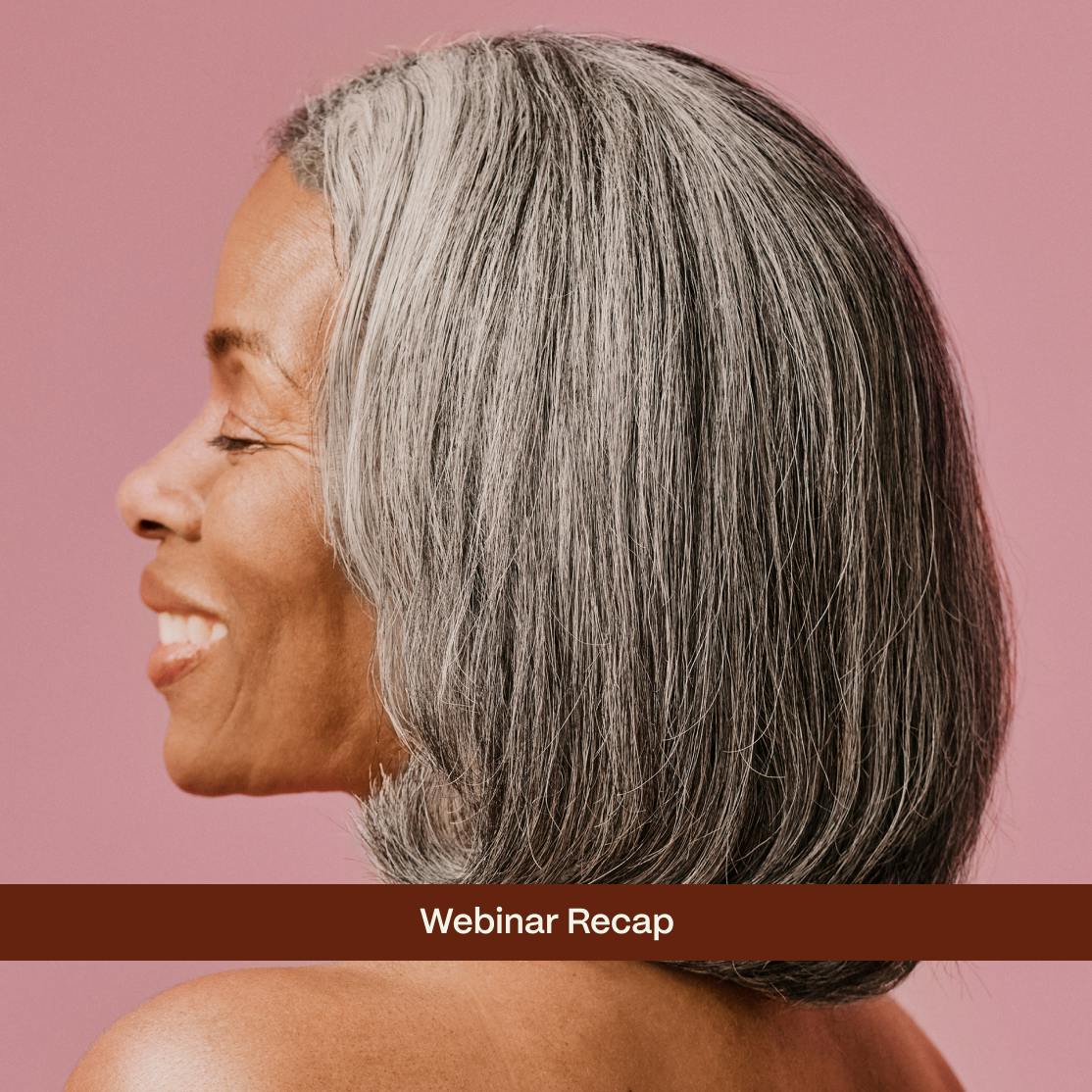Perimenopause and menopause don’t just impact one part of the body—they affect nearly every system, from the brain to the heart to the skin. In our recent webinar, Building Your Self-Care Toolkit, Midi's Dr. Kathleen Jordan and Dr. Lily Hanna shared practical, evidence-based tools to help women protect their healthspan and feel like themselves again.
📚 Suggested Reading:
Many of us grew up believing menopause was something that happened later in life, but the reality is that it often shows up while we’re still raising kids, caring for aging parents, and juggling demanding careers. While supporting everyone else, self-care can fall to the bottom of the list. This conversation offered community, validation, and the tools women need to thrive through the menopause transition.
💡 Key Highlights
Menopause is the time to lean into preventive self-care
- Women in midlife often experience a “sandwich generation” crunch—caring for children and aging parents while navigating demanding careers, which amplifies the physical and emotional toll.
- Hormonal changes increase LDL cholesterol, blood pressure, and inflammation, all contributing to cardiovascular risk.
- Women in the U.S. live longer than men, but spend an average of 14 more years living with disease or disability.

Treatment Options for Relief
Lifestyle Changes
- Strength training, high-protein and high-fiber diets, restorative sleep, and stress-reduction practices (like yoga and acupuncture) all support hormone health.
- Exercise is one of the most powerful tools for managing blood sugar, improving metabolism, boosting serotonin, and enhancing sleep quality.
- Dr. Jordan even compared her exercise results to those of metformin on a glucose monitor and saw similar improvements in blood sugar.
Supplements and Botanicals
Certain supplements have been shown to support midlife health:
- Berberine: Helps lower blood sugar and cholesterol
- NAD+ and CoQ10: Support cellular repair and brain health
- Omega-3s and B vitamins: Support cardiovascular and cognitive function
- Curcumin (from turmeric): Anti-inflammatory and neuroprotective properties
Always consult your clinician to determine what’s safe and effective for your body.
Hormone Replacement Therapy (HRT)
- HRT is the gold standard for managing symptoms like hot flashes, night sweats, sleep disruption, and vaginal dryness—and also protects long-term heart, bone, and brain health.
- It’s available in various forms: pills, patches, gels, creams, vaginal rings, and more.
Non-Hormonal Medications
For those who can't or prefer not to take hormones, other options include:
- Veozah (FDA-approved for hot flashes)
- Gabapentin (for night sweats and sleep)
- SSRIs and SNRIs (for mood and vasomotor symptoms)
- GLP-1 medications, like Ozempic and Wegovy, which have shown a 20% reduction in heart attacks, strokes, and cardiovascular death in clinical trials
Bonus: Brain Health & Dementia Prevention
- Women make up two-thirds of all people living with Alzheimer’s and are more likely to spend their later years in care facilities.
- Brain fog in midlife is real—but not the same as progressive dementia. Midi uses tools like Neurotrack to screen and support women at risk.
- Supplements like NAD, testosterone (under study), and GLP-1s may have neuroprotective effects.
Top Audience Questions & Expert Answers
What makes midlife a turning point for women’s health?
Midlife coincides with caregiving stress, peak career responsibilities, and hormonal decline, all of which can tax physical and emotional well-being.
Are my symptoms, anxiety, insomnia, and brain fog due to hormonal changes?
Often, yes. Fluctuating estrogen and progesterone levels can disrupt sleep, mood, cognition, and stress regulation.
What screenings are essential in this phase?
Breast cancer: Start mammograms at age 40
Colon cancer: Start at 45
Cervical cancer: HPV + Pap testing
Advanced screenings: Like Galleri (cancer blood test) or whole-body MRI
How do I improve my sleep in menopause?
Address hot flashes (possibly with hormones), avoid alcohol before bed, use consistent sleep routines, and explore supplements or therapies that support sleep.
Key Takeaways
- Menopause is not just a phase; it’s a critical health transition that can either accelerate decline or open the door to proactive, preventive care. What you do now shapes your future health, independence, and quality of life.
- Don’t wait for a diagnosis to take action. Stay current on screenings and explore new tools, such as glucose monitors, wearable tech, or advanced labs, that can help you personalize your care.
What Success Looks & Feels Like
If you’re in perimenopause or menopause and want guidance from clinicians who specialize in women’s midlife health, book a virtual visit with Midi today.
Hormonal change is at the root of dozens of symptoms women experience in the years before and after their period stops.
Our trained menopause specialists can help you connect the dots to guide you towards safe, effective solutions.
Whether you need personalized guidance or a prescription routine to tackle symptoms—including brain fog, hot flashes, sleep trouble, mood swings, and weight gain—we’ve got you covered.
Midi’s mission is to revolutionize healthcare for women at midlife, wherever they live and whatever their health story. We believe that starts with education, to help all of us understand our always-changing bodies and health needs. Our core values guide everything we do, including standards that ensure the quality and trustworthiness of our content and editorial processes. We’re committed to providing information that is up-to-date, accurate, and relies on evidence-based research and peer-reviewed journals. For more details on our editorial process, see here.
 Midi Team
Midi Team



